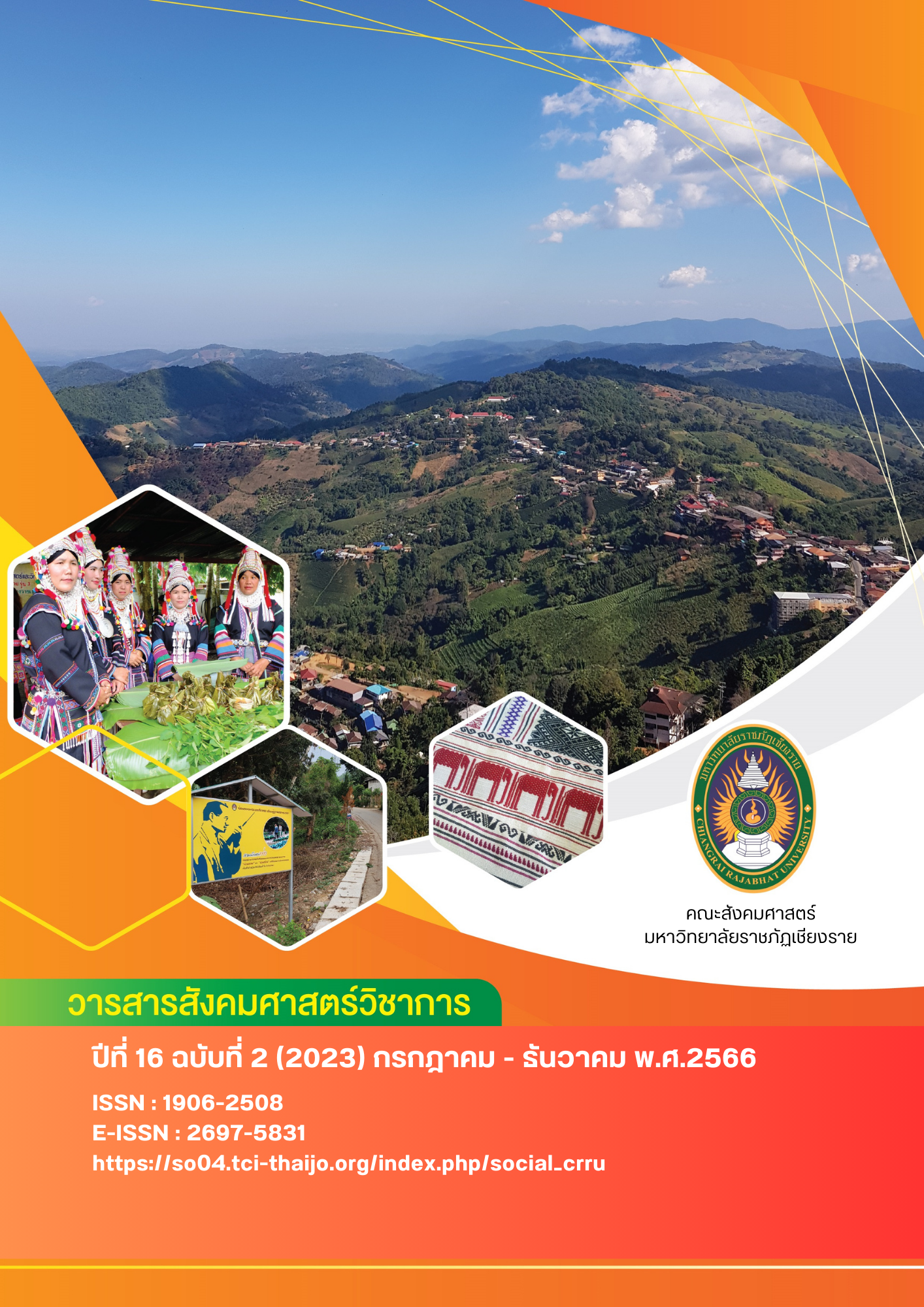การเสริมสร้างองค์ความรู้ภูมิปัญญาท้องถิ่นโดยใช้พืชสมุนไพรใบกระท่อมในการดูแลรักษาสุขภาพของตนเอง จังหวัดสระบุรี
Main Article Content
บทคัดย่อ
The objectives of this research were 1) to increase the opportunities to exchange the knowledge of local wisdom by connecting networks to elderly leaders to transfer it to the elderly members, and 2) to enhance and increase the efficiency of learning about local wisdom about kratom leaves available in the local area for the community in the participatory style. The study was conducted in Saraburi Province. The research was conducted as qualitative research through 1) in-depth interviews, 2) group discussions, and 3) public forums by collecting comments and suggestions from a sample group of elderly members from the Elderly Council, volunteer staff of Brainbank, elderly members of public benefit organizations and relevant government officials from the Office of Social Development and Human Security, Saraburi Province, totaling 150 people.
The results of the research revealed that 1) the factors regarding the encouragement of opportunities to exchange the knowledge of local wisdom by connecting networks to elderly leaders to transfer knowledge to elderly members were leadership, volunteerism, health, knowledge and time. For leadership, elderly people must set a clear example. For volunteerism, new members must hear explanations to have an understanding about the volunteers who come to join groups to help society without expecting anything in return. For health, most of the people who came to meetings or did activities together were healthy. For knowledge, the elderly’s educational qualifications were not higher than the college level, but they had their self-knowledge, especially about local wisdom, complying with the philosophy of sufficiency economy. For time, the elderly must have time to do activities with advance notice, and 2) with regard to strengthening and increasing the efficiency of learning about local wisdom about kratom leaves available in the local area for the community in the participatory style, it was found that the operating staff had knowledge only in the areas they were responsible for, but they had no clear understanding and lacked in integration in working together, readiness to carry out activities, knowledge and time. In addition, the budget was not enough to carry out activities and the policy for supporting to promote work for the elderly at the local level was not sufficient. As for solutions, operating staff should improve and develop their roles, duties and responsibilities in their own operations to be ready in terms of knowledge and clear understanding.
Keywords: local wisdom, kratom, elderly people
Article Details

อนุญาตภายใต้เงื่อนไข Creative Commons Attribution-NonCommercial-NoDerivatives 4.0 International License.
รายละเอียดของลิขสิทธ์
เอกสารอ้างอิง
Chimplee K. (2014). Knowledge management model for local wisdom in basketry handicrafts: a case study of a community enterprise. Nakhon Ratchasima Province. (Doctor of Philosophy Thesis, Department of Social Development and Environmental Management, Faculty of Social and Environmental Development, National Institute of Development Administration).
Chittiratanakul S. (2014). Leadership change and the performance effectiveness of mayors. Case study of Phang Nga Municipality, Mueang District, Phang Nga Province. (Report of independent study of Master of Public Administration, Major in Local Administration, College of Local Administration, Khon Kaen University).
Kim Hill. (2019). Moving beyond Stereotypes of Men's Foraging Goals. Current Anthropology 51.2: 265-267.
Office of Social Development and Human Security Saraburi Province. (2018). Report on the performance of the Office of Social Development and Human Security Saraburi Province.
Office of the National Economic and Social Development Board. (2016). Brain Bank Volunteer Qualification “The role of the elderly that is worth keeping an eye on” Brain Bank pamphlet. Office of the National Economic and Social Development Board Bangkok: Year 4, Issue 11, pages 2-8.
Orem, D. E. (2018). Nursing : Concepts and Practice. (6th ed.). St. Louis, MO: Mosby.
Peter M. Senge. (2017). The Fifth Discipline : The Art and Practice of the Learning. New York: McMillan.
Saman J. (2015) . Transformational leadership of educational institution administrators. Under the jurisdiction of the Secondary Educational Service Area Office 17, Chanthaburi Province. (Master of Education Thesis, Department of Educational Administration, Faculty of Education, Burapha University).
Sriboriboon N. (2016). Development of a causal model of high school students' volunteerism. School under the Office of the Basic Education Commission, Master of Education Thesis. Educational Research Branch, Faculty of Education, Chulalongkorn University.
Techathik S. et al. (2016). Potential and network of village leaders. “Manual and direction for developing village leaders to solve rural problems” Charoenwit Publishing, Bangkok.
Udomsin P. (2014). Models and tools used in knowledge management in agricultural extension work. Unit 2 in knowledge management in agricultural extension work. Nonthaburi: Sukhothai Thammathirat Open University.


